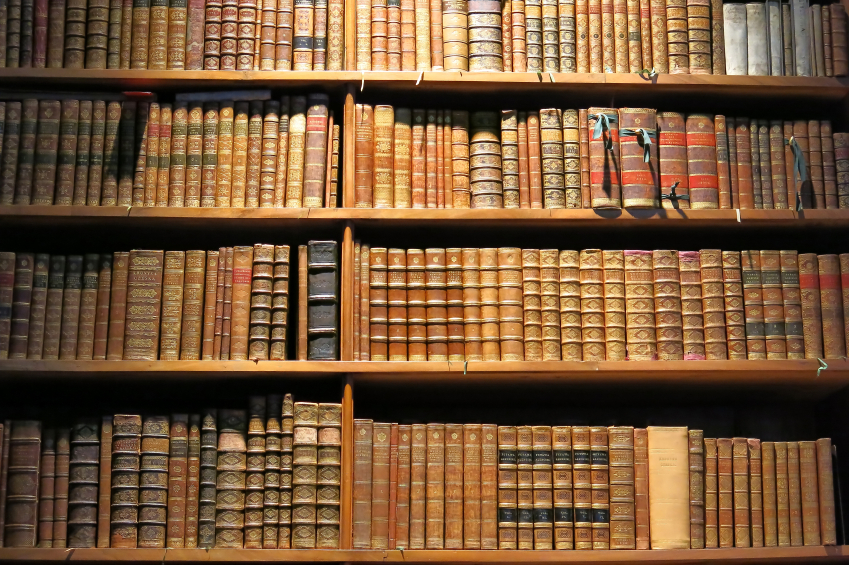
The Origins of a PhD
I've been asked a few times recently: 'how did you come up with your PhD topic?', mostly by Masters students who are currently in the process of applying for PhDs and funding. A few months ago I wrote a post about this for SGSAH's social network 'The Gither' and I wanted to make a slightly shortened and edited version of that post available here.
My project is titled 'The Young Scottish Reader in the Long Eighteenth Century'. I deal with evidence of children's actual reading experiences through letters, diaries, library borrowers' records, booksellers records and marginalia (the scribblings in books themselves) in order to construct a picture of what children may have been engaging with (rather than making assumptions based on what was published for children at the time).
Where it all began
Way back in 2012, while preparing for my undergraduate dissertation, I had to make a difficult decision about what my degree in English Studies was going to culminate in. We were told that this was something people would ask us about in interviews and general conversation and we should do something that we would be proud to talk about for years to come. I really wanted to focus on something I enjoyed. I enjoyed eighteenth-century and Romantic literature; my favourite modules had been 'Eighteenth-Century Literature' and 'Jane Austen' but throughout my degree, the Harry Potter series had always sat beside Sense and Sensibility on my bookcase (and in my list of all-time favourite books) and so I decided to work on children's literature.
Children's Literature
So it was an easy choice for me when we were given free reign to choose a topic for our undergraduate dissertations. But I did have to work hard to prove that it was scholarly enough. I chose three key 'children's books' of the twentieth century: Peter Pan, The Chronicles of Narnia and (one of my all-time favourites) His Dark Materials. I looked closely at the language used in each of texts, how it addressed both adult and child readers and the didactic messages of the novels in relation to gender norms. As I made my way through the reading and writing of my first dissertation, I was increasingly interested in the process of reading - What do children read? Why do they read it? And why are adults so keen to control what they read? I had my own, personal experiences of this too and I think in some ways those early experiences still influence the researcher I am today.
Learning to read
My early education took place in the Netherlands. We moved there when I was four and I spent the first four years of my school-life in a Dutch primary school. I learned to read and write in Dutch before English. It was a strange experience being able to speak and understand two languages but only read and write in one, and not the one I spoke at home.
I remember coming back to Scotland for a holiday at the age of six, having learned the rudiments of reading and writing in Dutch, with a strong desire to read and write in English. I took an A5 piece of blue airmail letter paper from my Gran's sideboard and proceeded to write down every word I knew for sure how to write in English. Most of the words were those gleaned from family letters: 'love', 'dear', 'granny', 'gran'pa'... I was desperate to know more. I started writing letters to my cousins in Ireland and we conversed back and forth for years, the letters steadily growing longer, more detailed, more elaborate. When we moved back to Scotland when I was eight years old, we immediately joined our local library. There I became obsessed with The Babysitter's Club and Sweet Valley Twins books, far from classic children's literature, but those books taught me to read in my own language and grew my love for reading. By the time we started our new school my reading and writing skills were advanced for my age and I was devouring up to fifteen books a week.
However, my choice of literature right throughout my teens was hardly typical for someone who went on to be a PhD student in English Literature. I gravitated towards the trashy mostly, with a strong preference for a harrowing WWII tale and even by the time I sat Higher English, my books of choice were definitely more popular than classic (my personal study was on The Girl with a Pearl Earing which is a fantastic book!). This meant that I had a bit of catching up to do by the time I went on to study English Literature at university. And I did catch up, but my love for children's books stayed alongside my love for Austen and Grassic Gibbon.
My PhD
The eighteenth century saw the growth of a recognisably separate literature aimed at children and children became an important part of the growing print culture. My initial research questions came from a curiosity about where this new categorisation of literature had come from but actually my own experiences of learning to read and choosing books as a child and a teenager were significant too. I'm glad I ignored those who told me I should be reading different things and I'm appreciative of those who saw that I loved reading and let me read whatever I wanted, because I have no doubt that those early experiences made me the researcher I am today and gave birth to a PhD which focuses on the actual child reader, and not on what we expect children to read.
So where did your PhD topic come from?